Terence Stamp sticks his head round the door and opens his mouth. How will this legend of British acting introduce himself? What pearl of wisdom will he divulge? Stamp, self-confessed “decadent” and former holder of the title of world’s best-looking man (1963-1969) speaks: “Gotta take a slash, man. Where’s the gents?” Having been pointed in the right direction, Stamp returns, visibly relieved.
It’s funny how things work out. Now 76, Stamp had a fantastic 1960s, during which he starred in a handful of imperishable classics (Billy Budd, Ken Loach’s Poor Cow, Pasolini’s Theorem) and consorted with some of the era’s most beautiful women (Julie Christie, Jean Shrimpton, Brigitte Bardot). His career fell off a cliff at the start of the 1970s, the drought ending with an improbable offer to play General Zod in the first two Superman movies. A peripatetic revival followed, with occasional juicy roles (The Hit, Wall Street, The Adventures of Priscilla, Song for Marion) alternating with pay-the-bills Hollywood (Young Guns, Elektra, Wanted). Retro fetishism started in 1999 with the Steven Soderbergh-directed The Limey, in which Stamp played a Get Carter-ish avenging gangster, and has continued to the present day, with Stamp currently lionised by another 60s-fetishising film-maker, Tim Burton, with roles in Big Eyes (as a snooty art critic) and the yet-to-be-completed Miss Peregrine’s Home for Peculiar Children.
But cinema has a habit of folding back on itself; this week sees the reissue of one of those imperishable 1960s films, Far From the Madding Crowd, an adaptation of the Thomas Hardy novel, in which Stamp plays the coldly raffish Sergeant Troy opposite Julie Christie’s Bathsheba. Spruced-up and spring-cleaned, and just less than half a century old, Far From the Madding Crowd is something else: they really don’t make them like this any more. Almost three hours long, smeared with mud and sheep dung in its grimly realistic recreation of early 19th-century Dorset, and benefiting from performances from actors at the top of their games, it glows on the screen exactly the way it must have when first released in 1967. At the time, however, it was considered a disaster: poor reviews, especially in the US, and a general inability to see past the with-it celebrity personas of Stamp and Christie, translated into underwhelming box-office and a severe career misstep for its director, John Schlesinger.
These days, Stamp is sanguine about the film, which has regained some cultural currency with the impending release of another adaptation, featuring Carey Mulligan in the Julie Christie role and Tom Sturridge in Stamp’s. “It was the first really commercial project I got involved with, and I was rather shocked by the reaction. I thought it had everything.”
Stamp goes on to explain – with what I come to realise is a habitual forthright honesty – that the experience was somewhat ruined by the fact he didn’t respect, or like, Schlesinger. “He didn’t strike me as a guy who was particularly interested in film. Plus I wasn’t his first choice: he really wanted Jon Voight. He wasn’t exactly hostile, but he really didn’t help me. I was working on my own, really.” Fortunately, says Stamp, he bonded with the director of photography, Nicolas Roeg (who would, of course, have a spectacular directorial career himself), and the two would go off after shooting had officially ended for the day to work on sequences of their own. That’s where the celebrated sword-demonstration scene came from, in which Stamp waggles his not entirely unsymbolic weapon to Christie’s squealing delight. “I’ll say this for Schlesinger, when he got in the cutting room and realised he had all this extra footage, he used it. He understood it then. But I didn’t have a lot of time for him.”
Liking – or not liking – his directors is one of Stamp’s big themes: joining Schlesinger on the naughty step are Ken Loach (“too political”), Joseph Losey (“no sense of humour”) and Pasolini (“didn’t talk to me”). On the plus side, though, are Fellini (“changed my life”), William Wyler (“really bonded with him”) and Burton (“a wonderful movie-maker”). Fraught though his on-set relationships may have been, Stamp says he never let it get to him. “I don’t have to get on with a director. What I’m concerned with is what goes into the camera.”
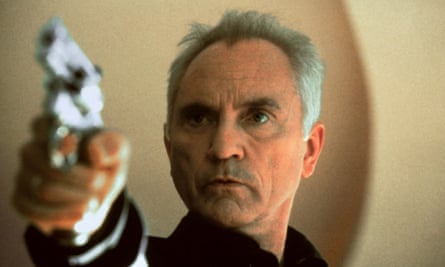
This, it seems, is something that didn’t extend to his Madding Crowd co-star, Christie, of whom he still speaks fondly and with a certain amount of awe. Their relationship – initiated after Stamp saw her on a magazine cover holding a submachine gun shortly after he’d shot to fame in 1962 with his first film lead, Billy Budd – has become one of the 60s most mythologised (not least because of the Terry-and-Julie namecheck on the Kinks’ Waterloo Sunset). It fizzled out just a year later, as Christie was experiencing her own star-making moment with Schlesinger’s second feature, Billy Liar. By the time Madding Crowd came round – the only film they made together – Stamp was seeing the model Jean Shrimpton, and Christie, with an Oscar under her belt for another Schlesinger film, Darling, was living with artist Don Bessant.
“It was before we were both famous: we met, and we had a romance. That was it. When I got my first movie, I knew it was my destiny to be a film actor, so that became my motivation in life. On the set, the fact that she had been my girlfriend just never came up. I saw her as Bathsheba, the character she was playing, who all the men in the film fell in love with. But it wasn’t hard, with somebody like Julie.”
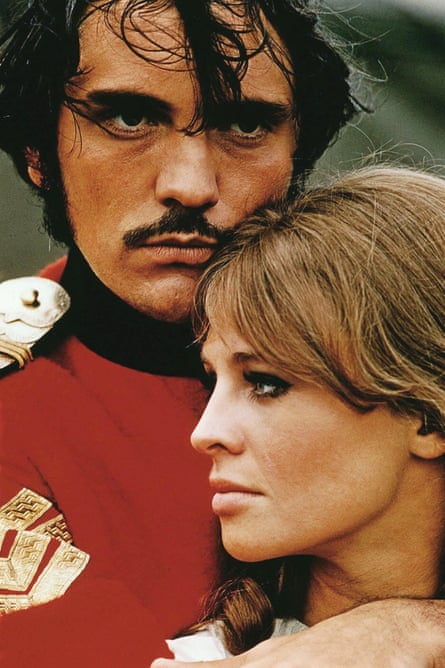
The more Stamp talks, the more you realise that not only is all that face-of-the-60s stuff well behind him, but that it also does him something of a disservice. With the directness of the autodidact, and the lack of embarrassment of someone who, on some level, is past caring, he rambles happily on, unconsciously emphasising his central preoccupation as a knowledge-seeker, an experience-ferreter, and someone who appears to enjoy being carried along by life.
He ended up doing Theorem, he says, because he bumped into childhood crush Silvana Mangano, who he’d seen in neo-realist classic Bitter Rice, on a Rome street (“I couldn’t believe she was there in the flesh”) and she suggested him for the role. “Pasolini told me: ‘A stranger arrives, makes love to everybody, and leaves. This is your part.’ I said: ‘I can do that!’” He explains how Fellini introduced him to Indian mystic Krishnamurti in the late 60s (“the first great enlightened man I’d ever met”), and he ended up doing the classic hippie trail: yoga, vegetarianism, living on an ashram. Working with Loach was “fascinating”: “No script, improvisation, in front of camera, making it up. That was a big event for me.” Pasolini, he says, startled him by filming with a secret camera: “I realised he was trying to get something from me when I wasn’t performing. He wanted a kind of being-ness.”
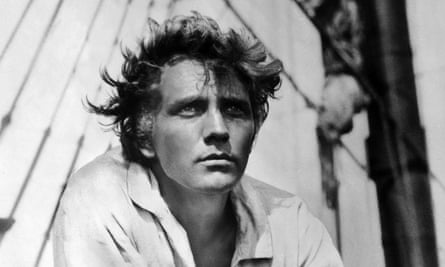
Even if he is prone to slipping into actorly psychobabble (“it’s hard for me to put a lot of my stuff into words,” he confesses), by any measure Stamp has come a long, long way. His childhood – first in the rough London district of Bow, and then in the somewhat gentler surrounds of Plaistow – evolved into a determined effort to escape a traditional working-class background and become part of the then-novel phenomenon of the non-posh actor. Drama school elocution lessons drove away his cockney accent, though he briefly drops into his original voice to illustrate a point – “frew vair” – and you suddenly get a glimpse of who he might have been if the acting bug hadn’t taken hold. (In the 1980s, he wrote two entertaining books about the time, Stamp Album and Coming Attractions, which stop abruptly at the moment Peter Ustinov cast him in Billy Budd.)
Somewhat improbably, he ended up sharing a flat with Michael Caine, while both were jobbing actors looking for their big break. Caine, eight years older than Stamp, was another guru, his “master” – though now, he says resignedly, they haven’t spoken for 40 years. “We just went different ways. I can understand it: in many ways he was much more mature than me.” Though he isn’t too sad to acidly observe that Caine’s career didn’t exactly live up to the original ideals that he had impressed on Stamp. “Caine gave me all my early values, like making sure you were doing good stuff, waiting for the right things – then as soon as he got away he did exactly the opposite. Went from one movie to another.”
But Stamp sounds still baffled as to exactly why his 60s hot streak ended so abruptly. “It’s a mystery to me. I was in my prime. When the 1960s ended, I just ended with it. I remember my agent telling me: ‘They are all looking for a young Terence Stamp.’ And I thought: ‘I am young.’ I was 31, 32. I couldn’t believe it. It was tough to wake up in the morning, and the phone not ringing. I thought: this can’t be happening now, it’s only just started. The day-to-day thing was awful, and I couldn’t live with it. So I bought a round-the-world ticket and left.” His fallow 70s period culminated with his extended India trip and it was while he was there, in 1976, that he got the celebrated telegram addressed to “Clarence Stamp”, offering him the role in Superman. (“I was on the plane the next evening.”)
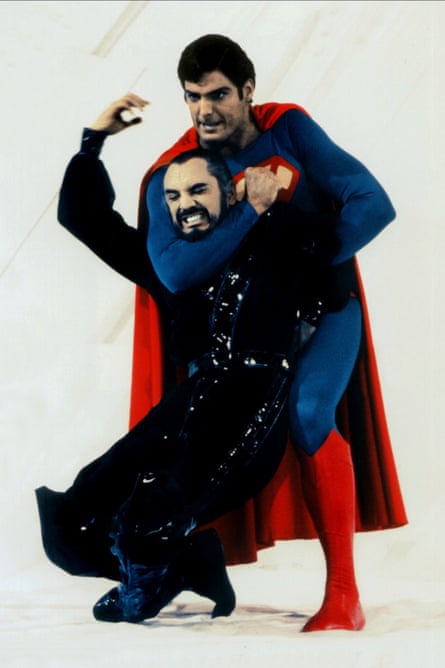
Playing Zod, it turns out, engineered a mind-shift, a third-act transformation that allowed him to reclaim his career. “During that time away from the screen, I had transmuted myself. I no longer saw myself as a leading man. What had happened inside of me enabled me to take the role, and not feel embarassed or depressed about playing the villain. I just decided I was a character actor now and I can do anything.”
These days, Stamp mostly plays grandfathers and pensioners (scoring a rare lead role recently, opposite Gemma Arterton and Vanessa Redgrave, in the surprisingly moving pensioner-choir yarn Song for Marion, for which Stamp drew on memories of his emotionally closed-off stoker dad Tom), and seems happy with his lot. He doesn’t own a home, still living what he calls the “stroller-player” life. “Where I came from, to own a house was something unreal – so when I had money, I gave houses to everyone: my parents, my aunt. But I never felt I needed to own one.” Not everything in the garden is rosy: his first and only marriage to an Australian pharmacist 35 years his junior, ended in 2008 after six years, and his brother Chris, co-manager of the Who, died three years ago.
And there is the question of “the work”. For someone so well known, so comprehensively identified with a tremendous cinematic era, Stamp’s output is notable for its idiosyncrasy, its seeming lack of direction and random switchback nature; it certainly has none of the strategic populist cunning of Caine’s. “I don’t have any ambitions. I’m always amazed there’s another job, I’m always very happy. I’ve had bad experiences and things that didn’t work out; my love for film sometimes diminishes but then it just resurrects itself. I never have to gee myself up, or demand a huge wage to get out of bed in the morning. I’ve done crap, because sometimes I didn’t have the rent. But when I’ve got the rent, I want to do the best I can.”
As a life manual, it sounds great. Meanwhile, everyone should go and see Far From the Madding Crowd. It, and Stamp, are brilliant: a fitting testament to a remarkable career.
Far From the Madding Crowd is released in the UK today
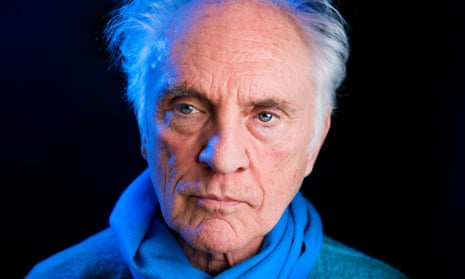
Comments (…)
Sign in or create your Guardian account to join the discussion